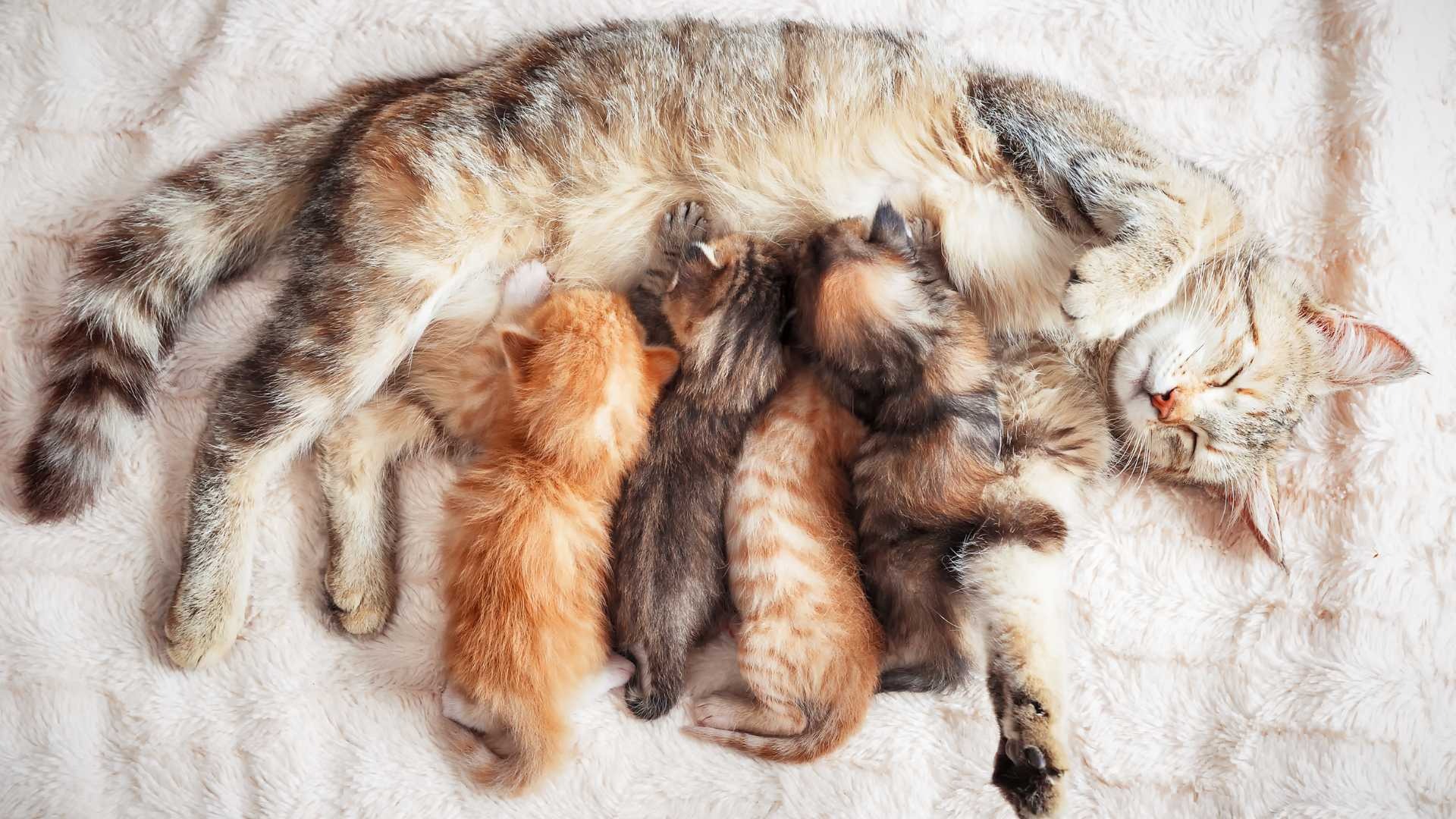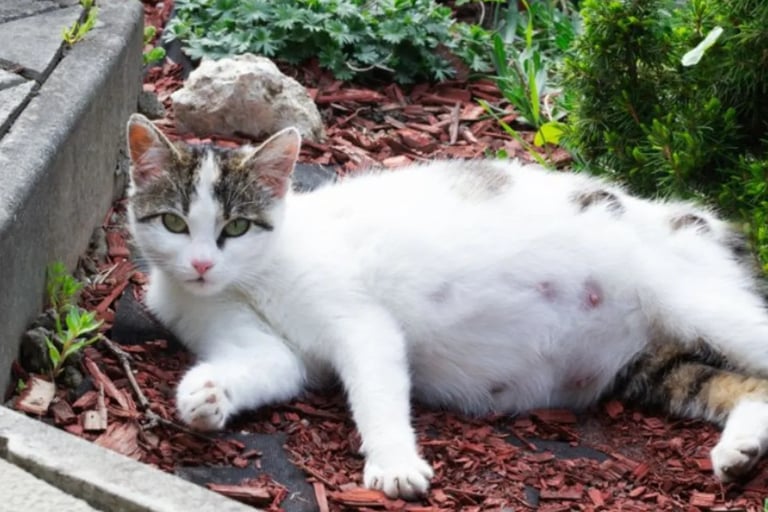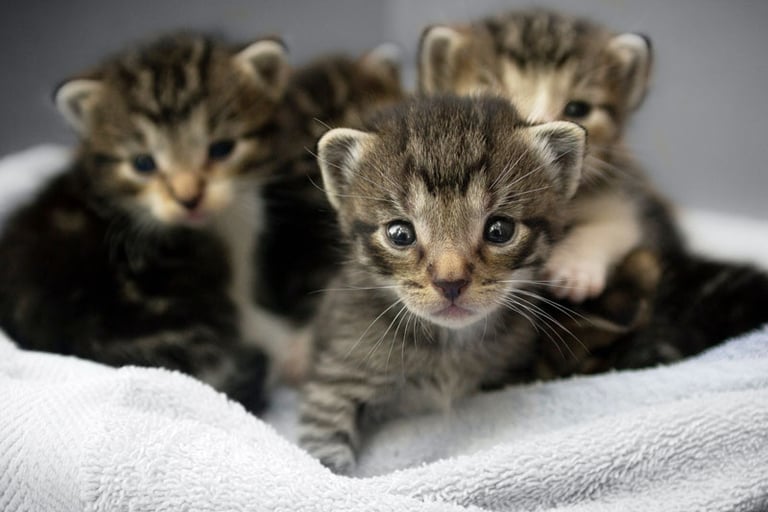
Complete Guide to Caring for a Pregnant Cat: Tips for a Safe Delivery
Discover how to care for a pregnant cat with this comprehensive guide. Learn about nutrition, behavioral changes, signs of labor, and postpartum care to ensure the health of your pet and her kittens. 🐱💖
PETS
2/4/20253 min read
Pregnancy in a cat is a delicate process that requires special attention to ensure the health of the mother and her future kittens. Below, we provide a detailed guide with key aspects for caring for a pregnant cat.
1. Confirming Pregnancy
The first signs of pregnancy in a cat may include weight gain, pink and enlarged nipples, changes in appetite, and more affectionate or reserved behavior. For accurate confirmation, it is recommended to consult a veterinarian, who can perform an ultrasound starting from the third week of gestation.
2. Nutrition and Diet
Proper nutrition is essential for the health of the cat and her kittens:
Provide high-quality food, preferably formulated for kittens or pregnant cats.
Ensure she has access to food at all times, as her energy demands increase.
Avoid overfeeding to prevent complications during delivery.
3. Environment and Comfort
It is important to provide a quiet and safe environment:
Prepare a birthing box in a warm, comfortable, and stress-free location.
Ensure the cat has enough water and access to a clean litter box.
Avoid excessive handling, especially in the later weeks of pregnancy.
4. Behavioral Changes During Pregnancy
During pregnancy, the cat may become more affectionate or, in some cases, more reserved. It is important to respect her space and provide her with tranquility. She may also seek warm and secluded places to prepare for delivery.
5. Exercise and Physical Activity
Moderate exercise is beneficial for a pregnant cat. It is recommended to:
Allow her to move freely within the home without forcing activity.
Avoid rough play or excessive jumping that may pose a risk to the pregnancy.
6. Specific Care at Each Stage of Pregnancy
Feline pregnancy lasts between 63 and 67 days, and her needs vary at each stage:
Early weeks: Changes in appetite and calmer behavior.
Mid-gestation: Greater weight gain and abdominal growth.
Final stage: Searching for a place to give birth and reduced activity.
7. Preventing Health Issues
It is essential to watch for signs of possible complications, such as:
Extreme lethargy or prolonged lack of appetite.
Abnormal bleeding or foul-smelling discharge.
Difficulty breathing or signs of pain. If these symptoms occur, it is crucial to consult a veterinarian immediately.
8. Caring for a Specific Breed
Some breeds may require special attention. For example:
Persian cats may have more complicated deliveries due to their head morphology.
Siamese cats tend to be more sensitive to environmental changes, so they require a more stable environment.
9. Special Care for a Stray or Rescued Cat
If the cat has been rescued, it is advisable to:
Take her to the veterinarian as soon as possible to assess her health.
Provide her with an appropriate diet and safely control internal and external parasites.
Provide a safe environment where she can give birth without risks.
10. Veterinary Check-ups
Regular veterinary check-ups allow monitoring of the kittens' development and the mother's health. Additionally, the veterinarian can advise on safe vaccinations and deworming during pregnancy.
11.Signs of Labor and Preparation
Delivery usually occurs between 63 and 67 days of gestation. Signs that the cat is about to give birth include:
Decreased appetite.
Searching for a quiet place to give birth.
Restlessness and constant licking of the genital area.
Drop in body temperature.
12. Postpartum Care
After delivery, it is essential to ensure that the cat and her kittens are in good condition:
Monitor that all kittens are nursing properly.
Keep the birthing area clean and warm.
Provide the mother with nutrient-rich food.
13. Considering Spaying After Delivery
To prevent unwanted pregnancies, spaying is a recommended option. It can be performed once the kittens have been weaned, around 8-10 weeks postpartum.
Conclusion
Providing proper care for a pregnant cat ensures a healthy gestation and delivery process. With love and attention, both the mother and her kittens can thrive in a safe and conducive environment. Offering the right care during pregnancy not only guarantees a successful delivery but also a better quality of life for the mother and her offspring. Monitoring and responsible care are key to a healthy pregnancy in cats.




AgroPetEd
Information about animals and agricultural practices
© 2025. All rights reserved.
